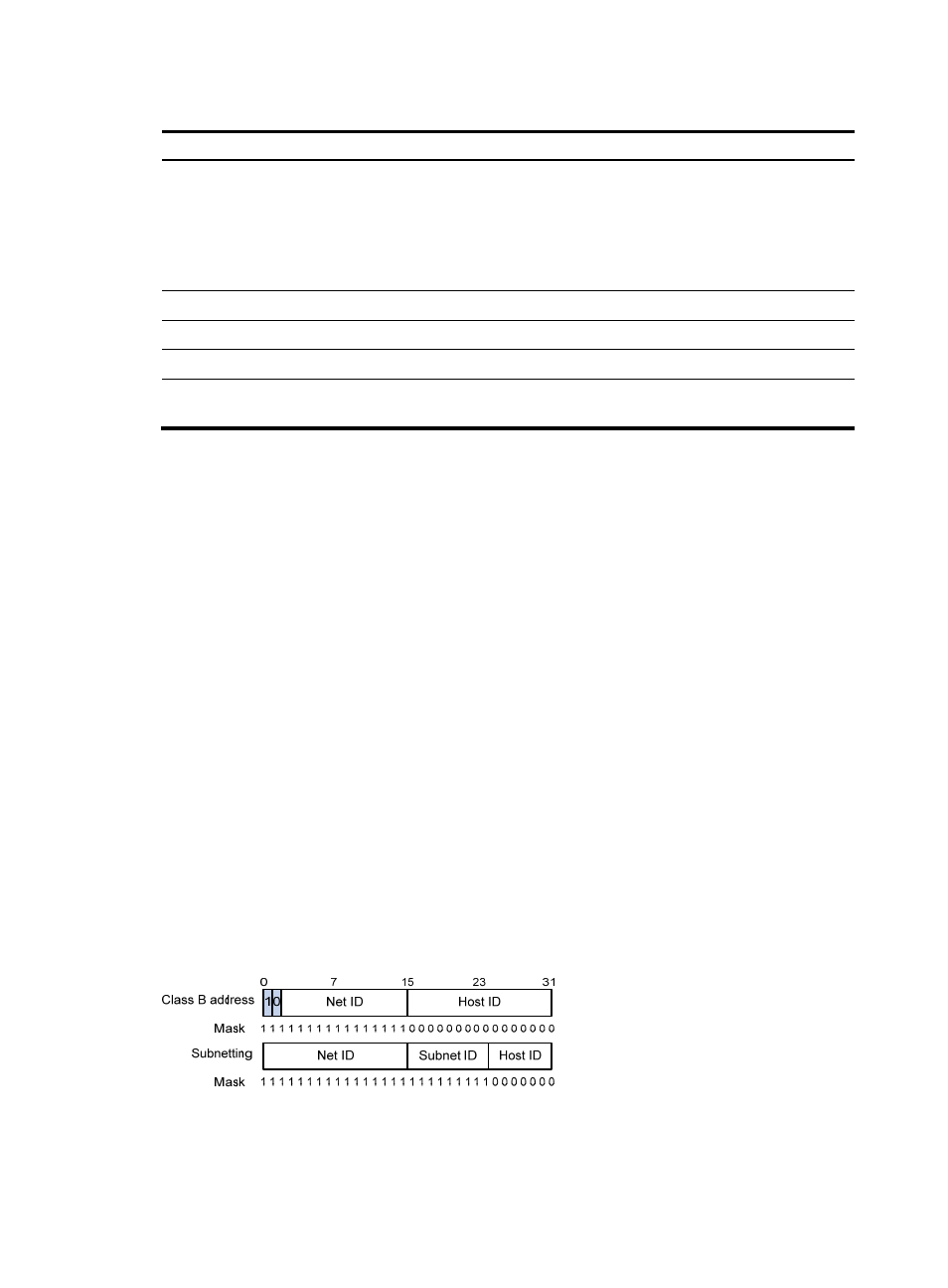Special ip addresses, Subnetting and masking – H3C Technologies H3C S5560 Series Switches User Manual
Page 34

19
Table 1 IP address classes and ranges
Class Address
range Remarks
A 0.0.0.0
to
127.255.255.255
The IP address 0.0.0.0 is used by a host at startup for
temporary communication. This address is never a valid
destination address.
Addresses starting with 127 are reserved for loopback
test. Packets destined to these addresses are processed
locally as input packets rather than sent to the link.
B
128.0.0.0 to 191.255.255.255
N/A
C
192.0.0.0 to 223.255.255.255
N/A
D
224.0.0.0 to 239.255.255.255
Multicast addresses.
E
240.0.0.0 to 255.255.255.255
Reserved for future use, except for the broadcast
address 255.255.255.255.
Special IP addresses
The following IP addresses are for special use and cannot be used as host IP addresses:
•
IP address with an all-zero net ID—Identifies a host on the local network. For example, IP address
0.0.0.16 indicates the host with a host ID of 16 on the local network.
•
IP address with an all-zero host ID—Identifies a network.
•
IP address with an all-one host ID—Identifies a directed broadcast address. For example, a packet
with the destination address of 192.168.1.255 will be broadcast to all the hosts on the network
192.168.1.0.
Subnetting and masking
Subnetting divides a network into smaller networks called subnets by using some bits of the host ID to
create a subnet ID.
Masking identifies the boundary between the host ID and the combination of net ID and subnet ID.
Each subnet mask comprises 32 bits that correspond to the bits in an IP address. In a subnet mask,
consecutive ones represent the net ID and subnet ID, and consecutive zeros represent the host ID.
Before being subnetted, Class A, B, and C networks use these default masks (also called natural masks):
255.0.0.0, 255.255.0.0, and 255.255.255.0, respectively.
Figure 7 Subnetting a Class B network
Subnetting increases the number of addresses that cannot be assigned to hosts. Therefore, using subnets
means accommodating fewer hosts.
